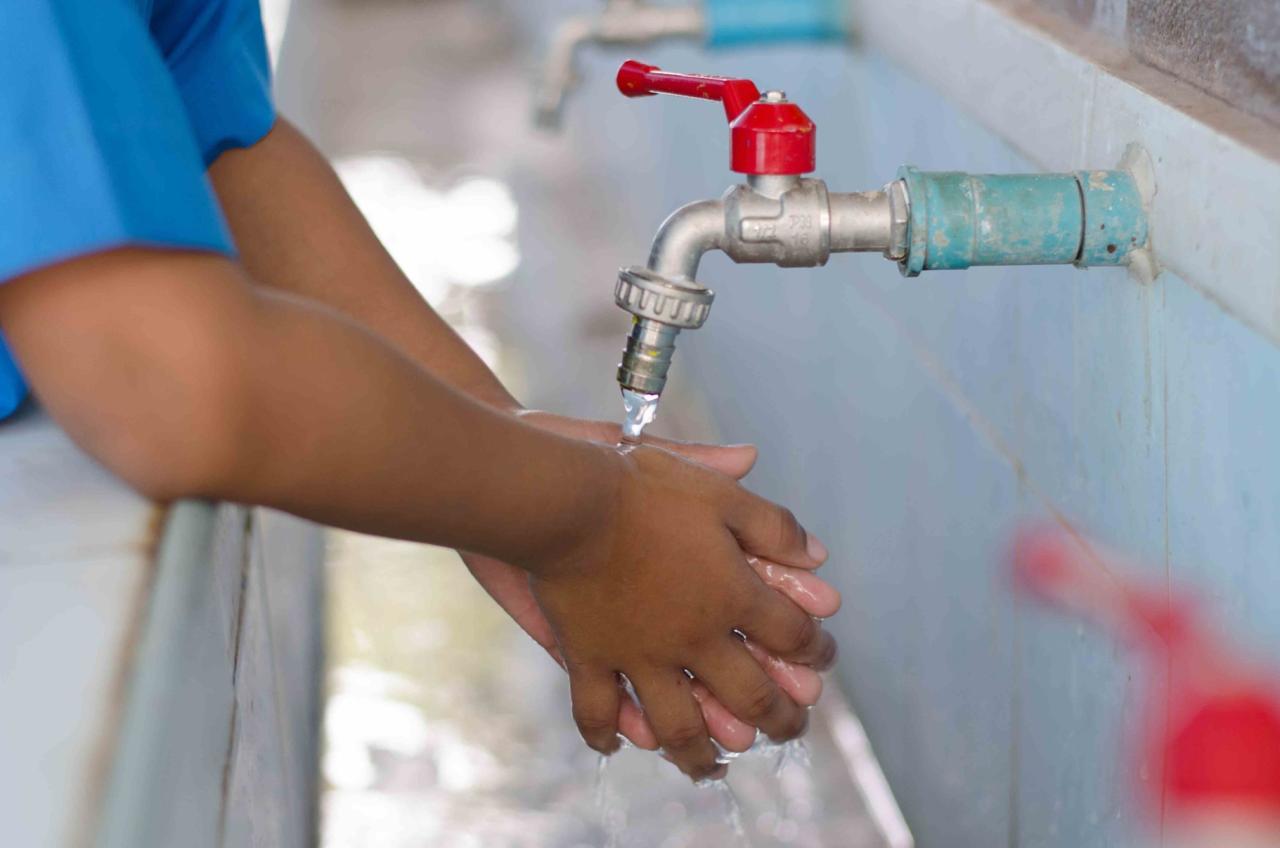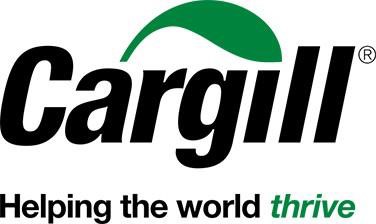Global Water Challenge and Cargill Launch Impactful New Prog
Global Water Challenge and Cargill Launch Impactful New Prog CSRwire.com


During World Water Week 2023, Global Water Challenge (GWC) and Cargill Launch New Projects in Brazil
Published 13 hours ago
Submitted by Global Environment & Technology Foundation (GETF)

WASHINGTON, August 23, 2023 /CSRwire/ – During World Water Week 2023, Global Water Challenge (GWC) and Cargill announced the launch of new projects in Brazil in partnership with Brazilian-based non-profit organizations. This initiative supports Cargill’s global commitment to addressing local water challenges and specifically improving access to safe drinking water in communities in priority regions.
Cargill and GWC launched its Cargill Currents platform in 2021 to address water challenges faced by local communities. The program supports access to safe drinking water and sanitation, and enhanced water security in priority regions by tailoring to the specific needs of the target communities. The global program is expected to benefit more than 150,000 people by the end of 2024. Building on this partnership, Cargill and GWC are expanding their efforts across Brazil by constructing sanitation facilities and water supply systems, which will significantly improve drinking water provision, community health and the overall well-being of Brazilian community members throughout seven projects across five municipalities and watersheds.
The new projects in Brazil, managed by GWC through the Cargill Currents platform, are designed to build community resilience, promote economic development and deliver multiple socio-economic and sustainability co-benefits beyond water access alone. These initiatives will prioritize efforts to promote community health and livelihoods by improving access to safe drinking water, sanitation and hygiene (WASH).
“Because of our position as a connector of the food system, Cargill has the unique ability to develop holistic water solutions that drive impact-at-scale. That’s why we’ve set a global ambition to enable a water positive impact across our operations, supply chains and communities by 2030,” said Michelle Grogg, Vice President of Corporate Responsibility at Cargill. “Partnering with organizations like Global Water Challenge is just one way we are working to strengthen local water systems. Together we will continue to drive sustainable change in communities where it is needed most.”
Selected Partner Organizations
- ChildFund: ChildFund is a child-focused international development organization that helps deprived, excluded and vulnerable children to have the capacity to improve their lives and the opportunity to become young adults, parents and leaders who bring lasting and positive change in their communities. In Brazil, ChildFund has been working since 1966 to address challenges impacting Brazilian children living below the international poverty line. These challenges include inadequate education, poor health care and lack of access to safe drinking water. ChildFund works with local partners to provide support, protection and care for children so that they grow up healthy and strong. This work also includes improving water quality and preventing water-borne diseases and infant mortality.
- Instituto de Projetos e Pesquisas Socioambientais (IPESA): IPESA is a Brazilian NGO comprising experts and environmental activists working to build a sustainable society that balances economic growth, preservation of natural resources and social justice. IPESA has worked extensively in Brazil to train on appropriate water management and improving water and sanitation access in rural communities.
These two organizations will play an instrumental role in ensuring that project activities are implemented in collaboration with the local communities in the following Brazilian municipalities: Luís Eduardo Magalhães, São Desidério, Santarém, São Félix do Xingu and Rio Verde. Key interventions include community upliftment and improving clean water access through the construction and rehabilitation of water supply and distribution systems, the development of water treatment systems, the promotion of effective water systems management, WASH education and training – particularly to reduce water-borne diseases and the empowerment of communities through training in financial and entrepreneurship skills.
“This World Water Week, we celebrate the power of collective action and partnerships that galvanize sustainable solutions to address water access challenges,” said Monica Ellis, CEO of Global Water Challenge. “Cargill’s global commitment to addressing critical needs in priority regions and building community resilience is commendable. As the partnership is at the core of GWC’s water stewardship programs, we are excited to be a part of these continued efforts through the expansion of our partnership with Cargill into Brazil. Brazil will form part of a growing list of countries and communities where livelihoods are being positively impacted through our partnership.”
The Cargill Currents platform is one example of how Cargill is working toward its global ambition to enable water-positive impacts across their operations, supply chains and communities by 2030, in alignment with United Nations Sustainable Development Goal 6. The Cargill Currents program, in partnership with GWC, started in 2021 and has implemented 13 projects in Cameroon, Ghana, Ivory Coast, India and the United States, positively impacting nearly 48,000 people to date. The newly launched projects in Brazil are expected to benefit an estimated 41,000 people with improved water access, sanitation and hygiene. By the end of 2024, Cargill Currents initial investments aim to benefit up to 150,000 people with improved WASH in priority communities and basins around the world. Additional projects are in development for Europe, North America and West Africa.
Across the world, Cargill is dedicated to effectively balancing and addressing the shared water challenges of availability, quality and access to safe drinking water, sanitation and hygiene, using an approach that is informed by local context. You can learn more about Cargill’s commitment to water here.
# # #

SDGs, Targets, and Indicators
-
SDG 6: Clean Water and Sanitation
- Target 6.1: By 2030, achieve universal and equitable access to safe and affordable drinking water for all.
- Target 6.2: By 2030, achieve access to adequate and equitable sanitation and hygiene for all and end open defecation, paying special attention to the needs of women and girls and those in vulnerable situations.
The article discusses Cargill’s commitment to addressing local water challenges and improving access to safe drinking water in communities in Brazil. This aligns with SDG 6, which aims to ensure clean water and sanitation for all. The specific targets mentioned in the article are related to achieving universal access to safe drinking water (Target 6.1) and equitable sanitation and hygiene (Target 6.2).
Indicators related to these targets could include the number of people with improved access to safe drinking water, the percentage of the population with access to basic sanitation services, and the reduction in open defecation rates.
-
SDG 3: Good Health and Well-being
- Target 3.3: By 2030, end the epidemics of AIDS, tuberculosis, malaria, and neglected tropical diseases and combat hepatitis, water-borne diseases, and other communicable diseases.
- Target 3.9: By 2030, substantially reduce the number of deaths and illnesses from hazardous chemicals and air, water, and soil pollution and contamination.
The article mentions that the new projects in Brazil will prioritize efforts to promote community health and livelihoods by improving access to safe drinking water, sanitation, and hygiene (WASH). This aligns with SDG 3, which aims to ensure good health and well-being for all. The specific targets mentioned in the article are related to reducing water-borne diseases (Target 3.3) and illnesses from water pollution and contamination (Target 3.9).
Indicators related to these targets could include the number of cases of water-borne diseases, the percentage of the population with access to improved sanitation facilities, and the reduction in water pollution levels.
Table: SDGs, Targets, and Indicators
| SDGs | Targets | Indicators |
|---|---|---|
| SDG 6: Clean Water and Sanitation |
|
|
| SDG 3: Good Health and Well-being |
|
|
Behold! This splendid article springs forth from the wellspring of knowledge, shaped by a wondrous proprietary AI technology that delved into a vast ocean of data, illuminating the path towards the Sustainable Development Goals. Remember that all rights are reserved by SDG Investors LLC, empowering us to champion progress together.
Source: csrwire.com

Join us, as fellow seekers of change, on a transformative journey at https://sdgtalks.ai/welcome, where you can become a member and actively contribute to shaping a brighter future.







